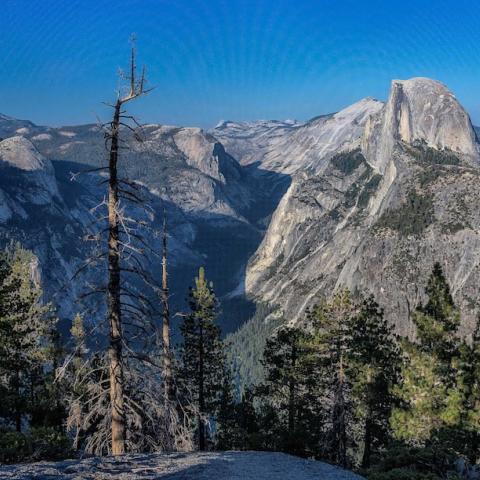
These are troubling days or the National Park System and National Park Service/NPS file
With the Interior Department led by a recent oil industry lobbyist and the National Park Service by a past political appointee who overlooked environmental rules to please a billionaire, we're embarking on a new paradigm for managing the National Park System, one that includes changing the rules on the fly.
Either truly concerned about the public's welfare, bothered by congressional delegations that want national parks fully staffed during the ongoing partial government shutdown, or refusing to question their original decision to keep parks open, top Interior and NPS officials in Washington, D.C., huddled Sunday and decided it would be better to use monies dedicated to improve visitor services on basic custodial services rather than closing the parks until President Trump and Congress can negotiate a way through their impasse over a wall on the country's border with Mexico. They made no mention of recently ousted Interior Secretary Ryan Zinke's suggestion that folks heading to the parks take a trash bag with them.
As the partial shutdown moved into its third week, many parks were overflowing with trash and human waste. The lucky ones, those with financially sound friends organizations and/or states that saw an investment in cleaning restrooms was better than losing tourism dollars, have for the most part been able to weather the drama.
Officials at Sequoia and Kings Canyon national parks couldn't, and closed both parks entirely last week. Joshua Tree, Big Bend, and Death Valley closed some campgrounds. Arches, Canyonlands, Rocky Mountain, Theodore Roosevelt, Badlands, and Wind Cave closed roads. Muir Woods National Monument was scheduled to close today, January 7.
Social media went full throttle in the blame game, with etiquette tossed in the overflowing trash bins.
A bit more than four years ago the government went through a full shutdown, for 16 days. Under President Obama, the entire National Park System was closed down. The move brought more than a little criticism, as planned weddings and river trips alike were affected, and not in a good way. An editor for an automobile magazine thought it would be the perfect time to take his dirt bike through Great Smoky Mountains National Park, including through a stream. Vandals in California hit Santa Monica Mountains National Recreation Area, where they cut open locks to gates barring entry to the recreation area. Though seemingly innocuous, Santa Monica Mountains officials were concerned that visitors unaware of the closure could find themselves deep in canyons where they could be trapped by wildfires. October, if you didn't know, is peak wildfire season.
Afterwards, the political blame game ensued (as it still does today if you bring up that shutdown: "Obama closed the parks," or "Ted Cruz did!"). Then-National Park Service Director Jon Jarvis was summoned to an hours-long joint hearing of the House Oversight and Natural Resources committees, where Republican members took him to the woodshed. Talking to Jarvis the other day, the former Park Service director recalled that hearing.
"I got grilled on the hill for five hours over it, and being accused that closing them was a political act," he told me. "And I vehemently disagreed with that, that it was a stewardship act, that we felt that without the employees there to manage and provide stewardship, that the parks would be vulnerable to impact. I think we’re actually seeing that play out now.”
We are seeing it, both in how the parks have filled with trash and been hamstrung in managing visitors. Not everywhere, of course. Zion National Park visitors reportedly have been respectful and tidy. Some at Big Bend, Yosemite, Joshua Tree and elsewhere, not so much.
And, too, we're seeing it in Washington with how politicians are bending, and possibly breaking, the rules for how Park Service revenues are to be spent. Along with spending fee revenues on basic custodial services, Park Service regulations have prohibited the use of fees to pay for salaries of permanent personnel.
This move also raises the question of whether Congress will figure the Park Service can pay for more things with fee revenues than general appropriations. And it figures to have an impact on deferred maintenance. Just a month ago more than a few members (on both sides of the aisle) in Congress were working hard to pass legislation to address a good portion of the maintenance backlog. Now they're not only back at square one with that effort, but it could get a bit more complicated with this fee swap decision.
If anyone is wondering, this is not the way to run the world's preeminent park system.




 Support Essential Coverage of Essential Places
Support Essential Coverage of Essential Places







Comments
https://www.biologicaldiversity.org/publications/earthonline/endangered-...
Trump's Latest Assault on Alaska's Wolves and Bears
https://www.jhnewsandguide.com/news/environmental/article_4d30e8f4-4623-...
Bill to ban snowmobile coyote whacking is run down